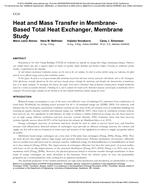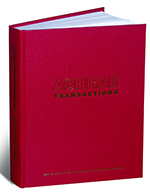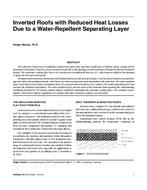Global warming and the urban heat island effect in large towns and cities demand new approaches to cooling buildings in an efficient and sustainable way. Modern refrigeration, air conditioning and heat pump (RACHP) systems can achieve a high coefficient of performance and low emissions, but refrigeration technology already accounts for around 15% of worldwide electricity use and up to 10% of all greenhouse gas emissions, so in the context of international agreements to reduce global greenhouse gas emissions by up to 80% RACHP systems alone cannot provide a sustainable cooling solution for cities.
The purpose of the model described in this paper is to provide a simple and easy to use tool to estimate the impact of different heating and cooling technologies, alternative building design and operating parameters and future global warming, on the energy demands and carbon emissions of buildings. Existing software tools for analysis of buildings can provide high quality results for a given scenario, but the determination of an optimal solution demands multiple simulations, which can be time consuming and require post processing to interpret the results. The Excel based tool uses a quasi-dynamic energy balance model and reduced weather data set to generate rapid results, allowing the user to view the building’s temperature profile, energy demands and carbon emissions in near real time and to develop an optimum cooling strategy. Results are presented for a single building version of the tool. When fully developed, it will allow the user to model clusters of buildings in an urban environment.
Citation: ASHRAE Papers CD: 2014 ASHRAE Winter Conference, New York, NY
Product Details
- Published:
- 2014
- Number of Pages:
- 8
- File Size:
- 1 file , 1.6 MB
- Product Code(s):
- D-NY-14-C056


